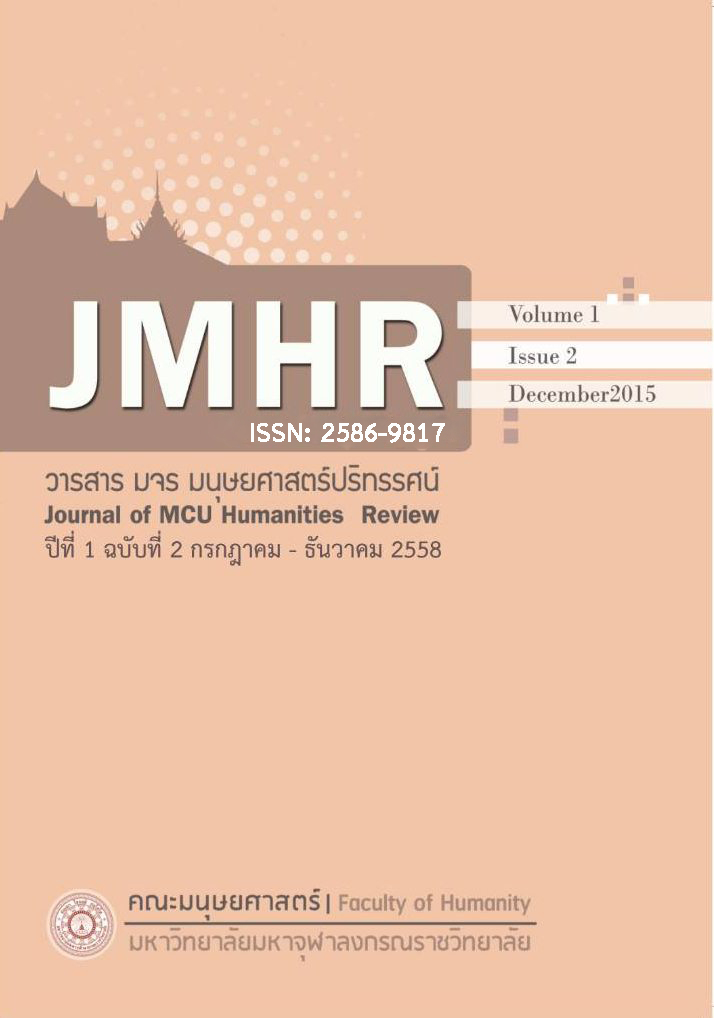วิธีคิดเชิงเหตุผลตามหลักพุทธจิตวิทยา
บทคัดย่อ
ก่อนคริสตศักราช 469 มนุษย์เริ่มหันมาสนใจเรื่องจิตหรือความคิดที่เป็นนามธรรมในตัวตนว่า ทำไมคนเราต้องคิด ต่อมาก็พบว่ามนุษย์เรานั้นเชื่อว่า สมองเป็นตัวผลิตความคิด เริ่มต้นด้วยโสคราตีส (Socratis, 470-399 B.C.) ที่กล่าวว่า วิญญาณหรือจิต เป็นตัวบงการให้มนุษย์คิดหรือกระทำสิ่งต่างๆ ต่อมามีกลุ่มนักจิตหลายกลุ่ม คือ กลุ่มทฤษฎีพัฒนาการ ประกอบด้วย กีเซลล์ (Gesell, 1911) อีริคสัน (Erikson, E.H, 1923) และทอแรนธ์ (Torrance, 1963) กลุ่มทฤษฎีการสร้างความรู้ ประกอบด้วย พีอาเจต์(piaget, 1936) และ วีก็อทสกี้ (Vygotsky, 1934) กลุ่มทฤษฎีพุทธิปัญญา(Cognitive theory) ประกอบด้วย บรุนเนอร์ (Bruner, 1957) คลอสเมียร์ (Klausmeire, 1985) และกาเย่ (Gagne, 1985) และกลุ่มทฤษฎีสติปัญญา ประกอบด้วย การ์ดเนอร์ (Gardner, 1983) และ สเติร์นเบอร์ก (Sternberg, R, 1949)
ความคิดเชิงเหตุผลตามแนวพุทธจิตวิทยามีกระบวนการ 3 ขั้นตอนคือ กระบวนการดำเนินชีวิตที่ดีคือ จะต้องรู้จักคิดแก้ปัญหาเป็น คิดเป็น และรู้จักเสพและบริโภคเป็น ระบบความคิดที่มีเหตุผล คือ ปรโตโฆษะ (การอบรมสั่งสอนที่ดีงาม) และโยนิโสมนสิการ (การคิดถูกวิธีถูกทาง) 10 ประการคือ คิดแบบสาวหาเหตุปัจจัย แยกแยะส่วนประกอบ สามัญลักษณ์ อริยสัจ อรรถธรรมสัมพันธ์ เห็นคุณและโทษทางออก รู้คุณค่าแท้และคุณค่าเทียม เร้าคุณธรรม อยู่กับปัจจุบัน และแบบวิภัชวาท






